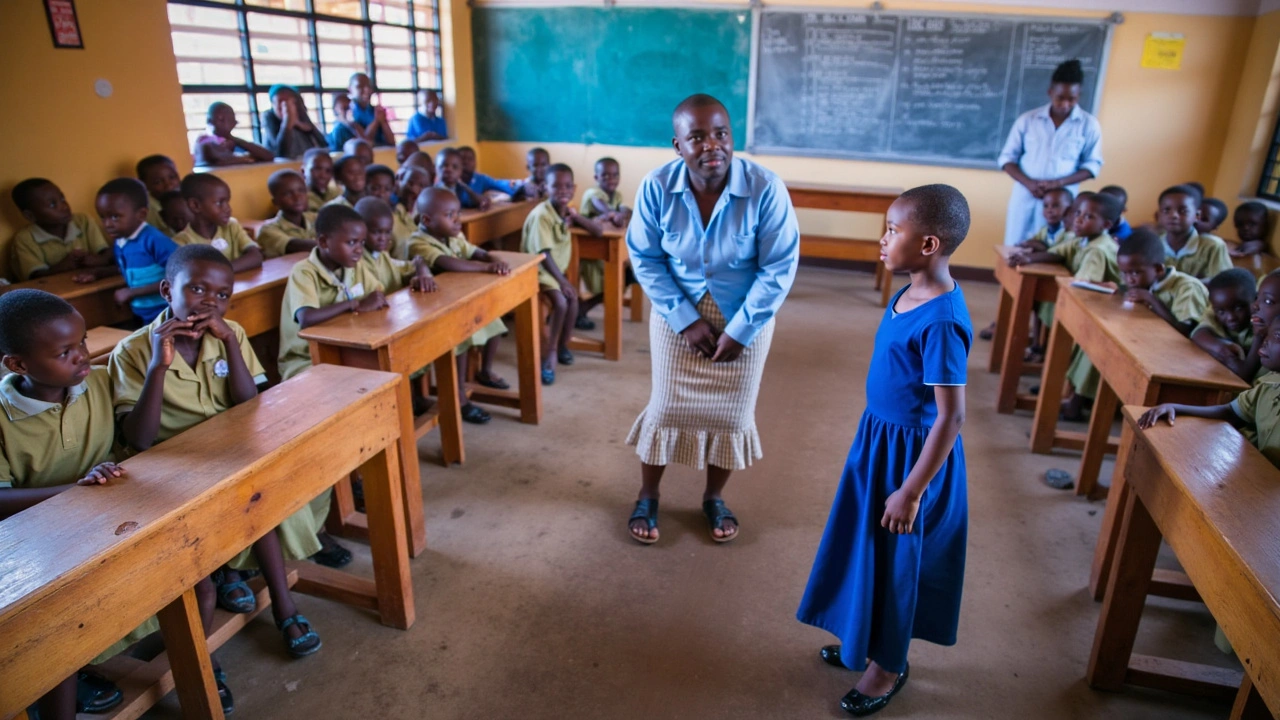Teacher support you can use today
Teaching is rewarding but messy. You need quick ideas, emotional backup, and access to materials that actually work in your classroom. This page collects practical teacher support for educators across Africa — things you can try tomorrow or share with your colleagues.
Practical classroom tips
Start small. Pick one routine to improve: arrival, group work, or ending the lesson. Clear routines cut chaos and save time. Use a simple timer for activities. Timers help students focus and let you keep the lesson moving.
Low-cost materials go a long way. Reuse local items as teaching aids — bottle caps for counting, cardboard for flashcards, newspapers for reading practice. These are cheap, easy to replace, and familiar to students.
Mix whole-class and small-group work. A short whole-class introduction followed by guided groups lets you see who needs help. While groups work, pull two or three students for a quick one-on-one check. That small touch raises overall progress.
Use peer teaching. Older or stronger students can lead short mini-lessons. This builds confidence and frees you to support struggling learners. Rotate roles so many students get a chance to teach.
Keep assessments simple. One-minute exit notes or a thumbs-up/thumbs-down check work better than long tests. Quick checks show what to reteach and help plan the next lesson.
Where to find help and resources
Free online courses and materials: Coursera, Khan Academy, and UNICEF’s learning hubs offer lesson ideas and training. You can download PDFs or use short videos for revision. If internet is limited, save materials offline on a phone or USB drive.
Use WhatsApp or Telegram groups to share plans and get instant feedback from other teachers. A small group of five to ten teachers can swap templates, timings, and behaviour strategies. Real-time chats beat waiting for formal meetings.
Look for microgrants and local funding. Organizations like the Global Partnership for Education, local education departments, and community NGOs sometimes fund classroom kits, books, or pupil supplies. Write a one-page proposal that explains how funds will improve learning and show simple metrics you will track.
Mind your wellbeing. Teaching is tiring. Build short rituals: a five-minute breathing break after school, a quick walk, or a check-in with a colleague. Talking about problems with a trusted peer reduces stress and prevents burnout.
Want regular updates? Daily Africa Global News covers education stories and teacher support initiatives across the continent. Bookmark the tag for new guides, funding calls, and local success stories you can adapt to your school.
If you need a starter checklist for the week — routines, 3 low-cost resources, one quick assessment, and a wellbeing step — try it out and tweak it. Small changes add up fast.

Addressing Urgent Challenges Facing Rwandan Educators on World Teachers' Day 2024
On World Teachers' Day 2024, Rwanda's educators highlight critical issues that demand immediate attention for them to provide quality education. Challenges such as low salaries, inadequate resources, and limited training opportunities persist despite governmental efforts. Resolving these issues is vital for teachers to fulfill their roles in developing the country's future, emphasizing the urgency for more robust solutions.